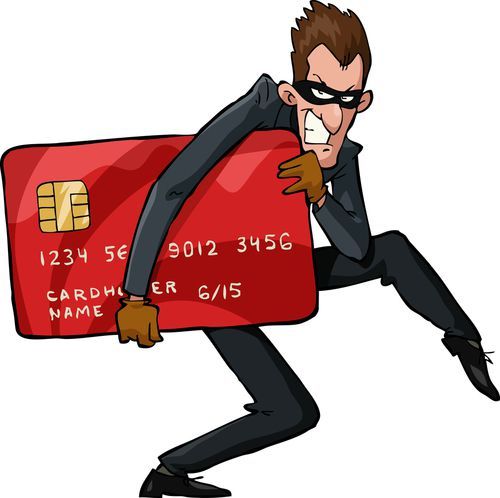Penal Code § 484i PC prohibits counterfeiting credit cards or making, possessing and/or trafficking credit card-making machinery. This offense can be charged as a misdemeanor or a felony and is punishable by up to 3 years in jail.
The language of the code section reads as follows:
484i. (a) Every person who possesses an incomplete access card, with intent to complete it without the consent of the issuer, is guilty of a misdemeanor.
(b) Every person who, with the intent to defraud, makes, alters, varies, changes, or modifies access card account information on any part of an access card…or who authorizes or consents to alteration, variance, change, or modification of access card account information by another, in a manner that causes transactions initiated by that access card to be charged or billed to a person other than the cardholder to whom the access card was issued, is guilty of forgery.
(c) Every person who designs, makes, possesses, or traffics in card making equipment or incomplete access cards with the intent that the equipment or cards be used to make counterfeit access cards, is punishable by imprisonment in a county jail for not more than one year, or by imprisonment pursuant to subdivision (h) of Section 1170 .
This code section is one of several credit card fraud laws in California.
Examples
- Deborah changes the account number on her credit card, so it is the same as her neighbor’s.
- Pedro agrees with a friend and allows him to modify the expiration date on his own debit card.
- Juanita stores credit card-making equipment in her apartment.
Defenses
Luckily, there are several legal defenses that you can raise if accused under PC 484i. These include showing that you:
- did not have criminal intent,
- acted out of necessity, and/or
- were falsely accused.
Penalties
A violation of Penal Code 484i can be charged as either a misdemeanor or a wobbler, depending on the facts of the case. Please note that a wobbler offense can be charged as either a misdemeanor or a felony.
While a misdemeanor PC 484i charge is punishable by imprisonment in the county jail for up to six months or one year, a felony charge is punishable by a maximum three-year county jail sentence.
In addition, violations of Penal Code 484ib are charged and punished as forgery, per California Penal Code 470.
Our California criminal defense attorneys will explain the following in this article:
- 1. What is the crime of counterfeiting credit cards?
- 2. Are there legal defenses to PC 484i violations?
- 3. What are the penalties, punishment, and sentencing?
- 4. Related laws

1. What is the crime of counterfeiting credit cards?
Penal Code 484i PC is the California statute that makes it a crime to counterfeit credit cards. You violate this statute if you:
- possess an incomplete credit card with the intent to complete it without the consent of the issuer (an “incomplete” card is one that, for example, is missing the bank logo),
- alter, change or modify any part of the credit card, regardless of whether the change is to the face of the card or to the information contained in the card (altering the content in the magnetic stripe, for example) with the intent to defraud,
- allow another person to alter or modify the card or its account information, or
- make, possess, or “traffic” (that is, sell or exchange) credit card making equipment or incomplete credit cards with the intent that the equipment or cards be used to make counterfeit access cards.1
2. Are there legal defenses to PC 484i violations?
Three common defenses to PC 484i charges include:
- no criminal intent,
- necessity, and/or
- falsely accused.
2.1. No criminal intent
Penal Code 484i PC states that you must act with a certain intent to be guilty under each of its sections. For example, you must act with an “intent to defraud” to be convicted under PC 484ib. This means it is a valid legal defense to show that you did not act with this requisite intent.
2.2. Necessity
Under a necessity defense, you essentially try to avoid guilt by showing that you had a sufficiently good reason to commit the crime. In the context of counterfeiting a credit card, you could attempt to show that you committed the crime since you had no other choice (for example, because of an emergency).
2.3. Falsely accused
Unfortunately, it is not at all uncommon to get prosecuted based on false allegations. People get falsely accused out of
- jealousy,
- revenge, and
- anger.
Thus, it is a valid defense to say that a party falsely accused you of violating Penal Code 484i.

3. What are the penalties, punishment, and sentencing?
The penalties for Penal Code 484i violations will vary depending on what code section gets violated.
Violating Penal Code 484ia is a misdemeanor.2 This violation is punishable by:
- imprisonment in a county jail for up to six months, and/or
- a maximum $1,000 fine.
Violating Penal Code 484ib is forgery and is punished as a wobbler offense in accordance with Penal Code 470 PC.3
Violating Penal Code 484ic is a wobbler offense.4 This means it can be charged with either a misdemeanor or a felony.
If charged as a misdemeanor, the crime is punishable by:
- a maximum $1,000 fine, and/or
- imprisonment in a county jail for up to six months.
If charged as a felony, the crime is punishable by:
- a maximum $10,000 fine, and/or
- 16 months or two or three years in county jail.
4. Related offenses
There are three laws related to counterfeiting credit cards. These are:
- credit card fraud by a retailer – PC 484h,
- stealing a credit card – PC 484e, and
- forging credit card information – PC 484f.
4.1. Credit card fraud by a retailer – PC 484h
The manner in which PC 484h violations get charged depends on the value of the property a retailer receives.
If a retailer commits credit card fraud, and it receives more than $950 in a consecutive six-month period, then the retailer will be charged with grand theft, per Penal Code 487.
If a retailer violates PC 484h, and it receives less than $950 in a consecutive six-month period, then the retailer will be charged with petty theft, per Penal Code 484 and 488.
4.2. Stealing a credit card – PC 484e
Violating PC 484e is grand theft, under Penal Code 487. The maximum penalty for a violation of this statute is imprisonment in the county jail for up to three years.7
4.3. Forging credit card information – PC 484f
Penal Code 484f PC is the California statute that makes it a crime to forge credit card information.
Violations of Penal Code 484f are punished under Penal Code 470 PC, or California’s forgery law.8 This offense can be charged as either a misdemeanor or a felony and can lead to imprisonment for up to three years.
Legal References:
- California Penal Code 484i PC.
- California Penal Code 484ia PC.
- California Penal Code 484ib PC.
- California Penal Code 484ic PC.
- California Penal Code 484h PC.
- California Penal Code 484e PC.
- California Penal Code 489 PC.
- See same.
